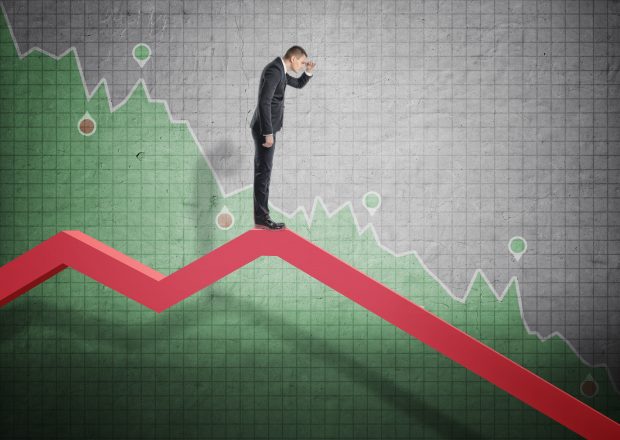 Credit/Adobe Stock
Credit/Adobe Stock
Friday's poor jobs report added to worries the economy is getting ahead of the Fed, endangering chances of a soft landing and making it likely the Fed will cut rates in September – maybe by 50 basis points, economists said.
The U.S. Bureau of Labor Statistics reported the nation gained a seasonally adjusted 114,000 non-farm jobs in July – far lower than previous reports – while gains in May and June were lowered by a combined 29,000 jobs. The jobless rate was a seasonally adjusted 4.3% in July, up from 3.5% a year earlier and 4.1% in June.
Recommended For You
Curt Long, deputy chief economist for the America's Credit Unions trade group, said the jobs report was "mediocre" and signaled a higher risk of recession.
 Curt Long
Curt Long "With many observers fearing that the Fed has fallen behind the curve in addressing deteriorating labor market conditions, a September rate cut is a near certainty and a 50-basis point cut is now on the table," Long said.
Long said the unemployment rate has risen steadily since April "and has now triggered the Sahm Rule."
Economist Claudia Sahm proposed the rule in 2019, according to the Investopedia.com website. She said the economy is likely in recession if the three-month moving average of the unemployment rate rises half a percentage point from its low point in the previous 12 months. Friday's report showed the three-month average for the seasonally adjusted jobless rate was 4.1% in July, 0.5 percentage points higher than the 3.6% low point in the three-month average since July 2023.
On Wednesday, Cox Automotive Chief Economist Jonathan Smoke wrote that the Fed was risking a recession by its delays in cutting rates. "My worry is that conditions will deteriorate more at an accelerating pace before the Fed finally decides to cut."
In addition to rising joblessness, Mike Fratantoni, chief economist for the Mortgage Bankers Association, said the 114,000 job gain was well below the 12-month average of 215,000 jobs, and wage growth ebbed to 3.6%.
 Michael Fratantoni
Michael Fratantoni "The job market definitively slowed in July," Fratantoni said. "This slowing is consistent with trends in other data including the slower hiring rate, increases in initial claims for unemployment insurance, signs of contraction in the manufacturing sector, and some signs of stress for households. Construction employment showed a small gain, as builders continue to work to add to housing supply given the ongoing shortage."
Fratantoni said the jobs report would support the Fed cutting rates in September, "but the next inflation report needs to confirm that price growth is also slowing."
"The market is moving ahead of the Fed, bringing down longer-term rates including those for mortgages, which should lead to both more home purchases and a pickup in refinance activity," he said.
© Touchpoint Markets, All Rights Reserved. Request academic re-use from www.copyright.com. All other uses, submit a request to [email protected]. For more inforrmation visit Asset & Logo Licensing.







